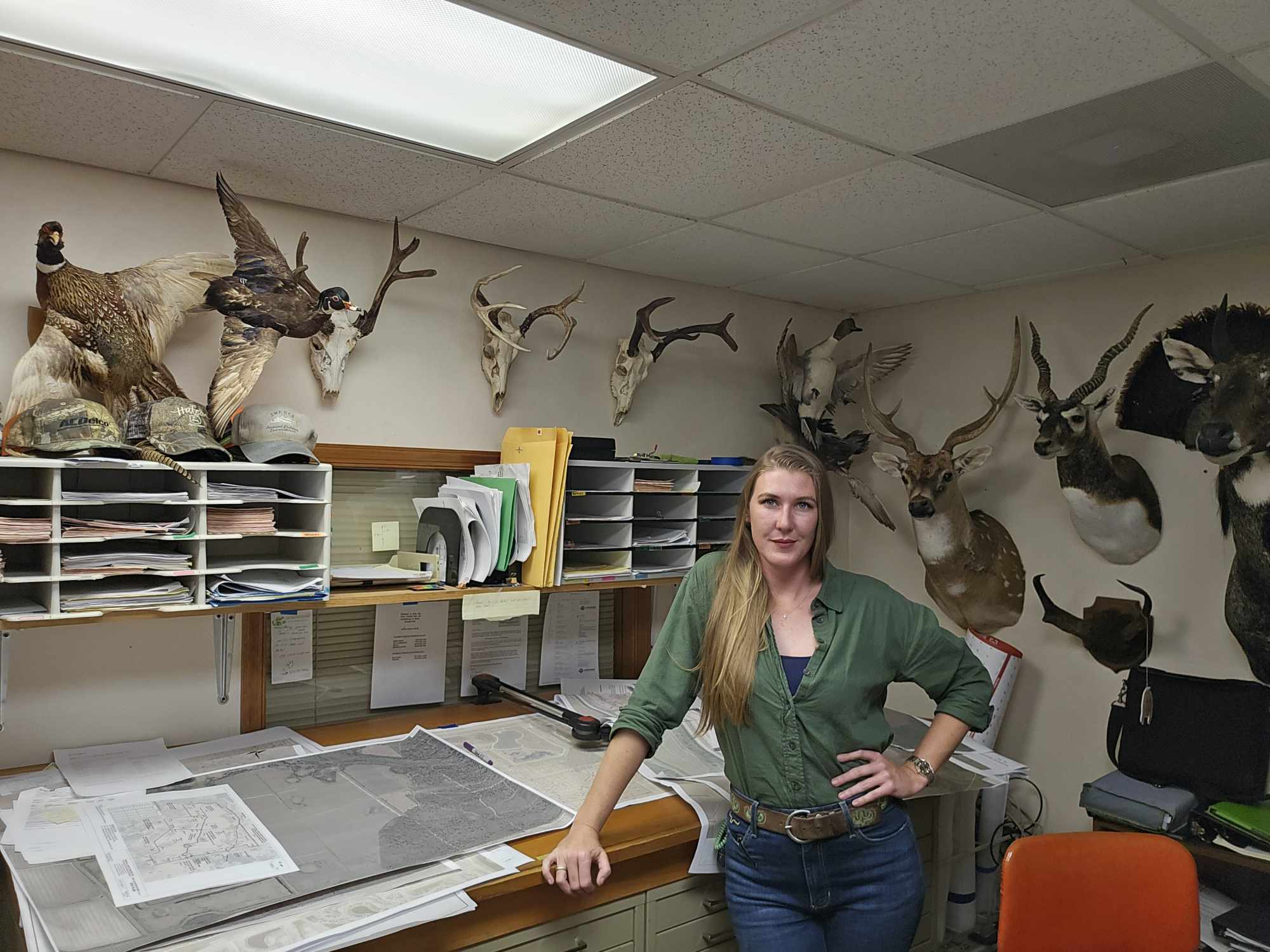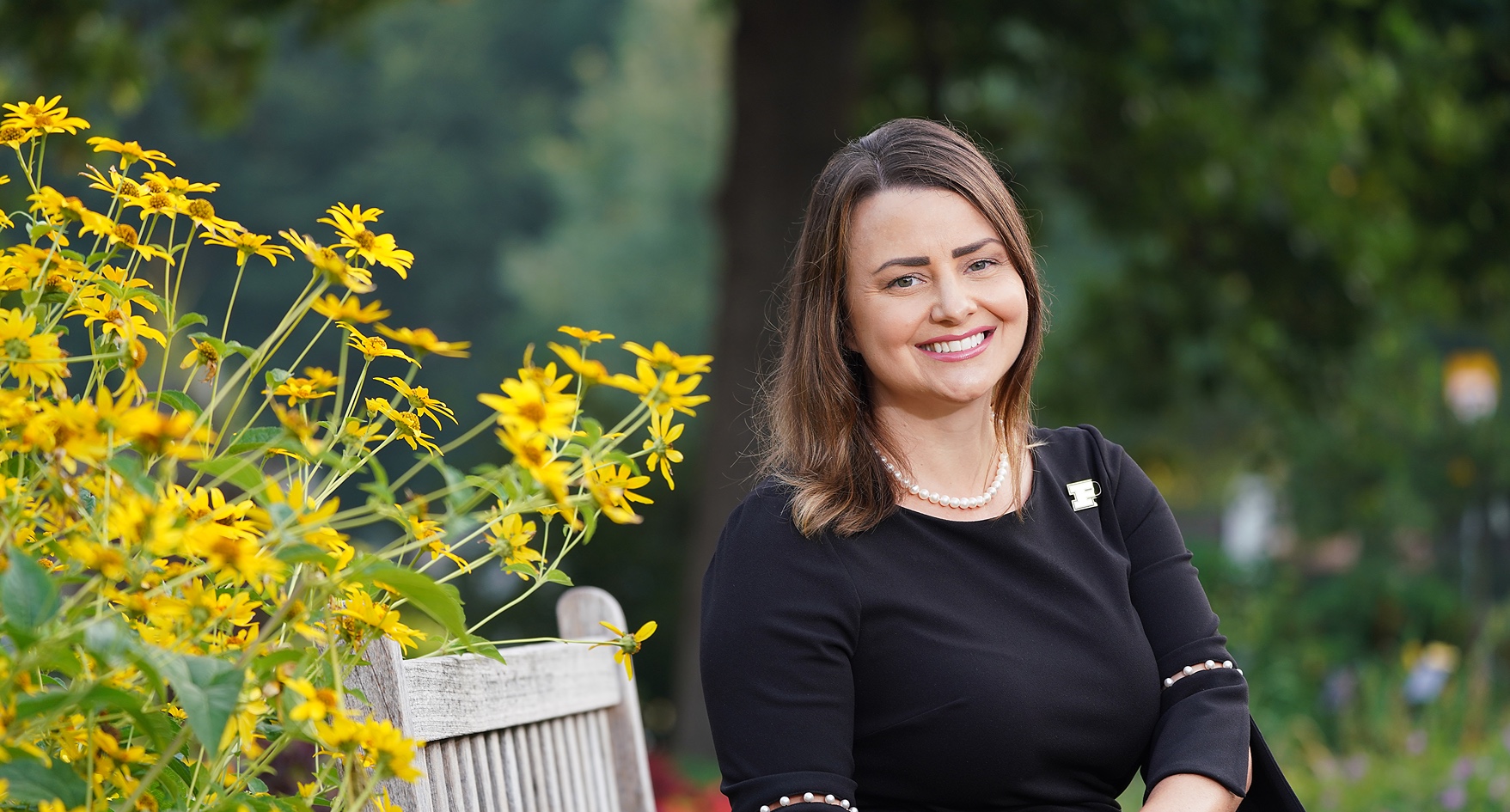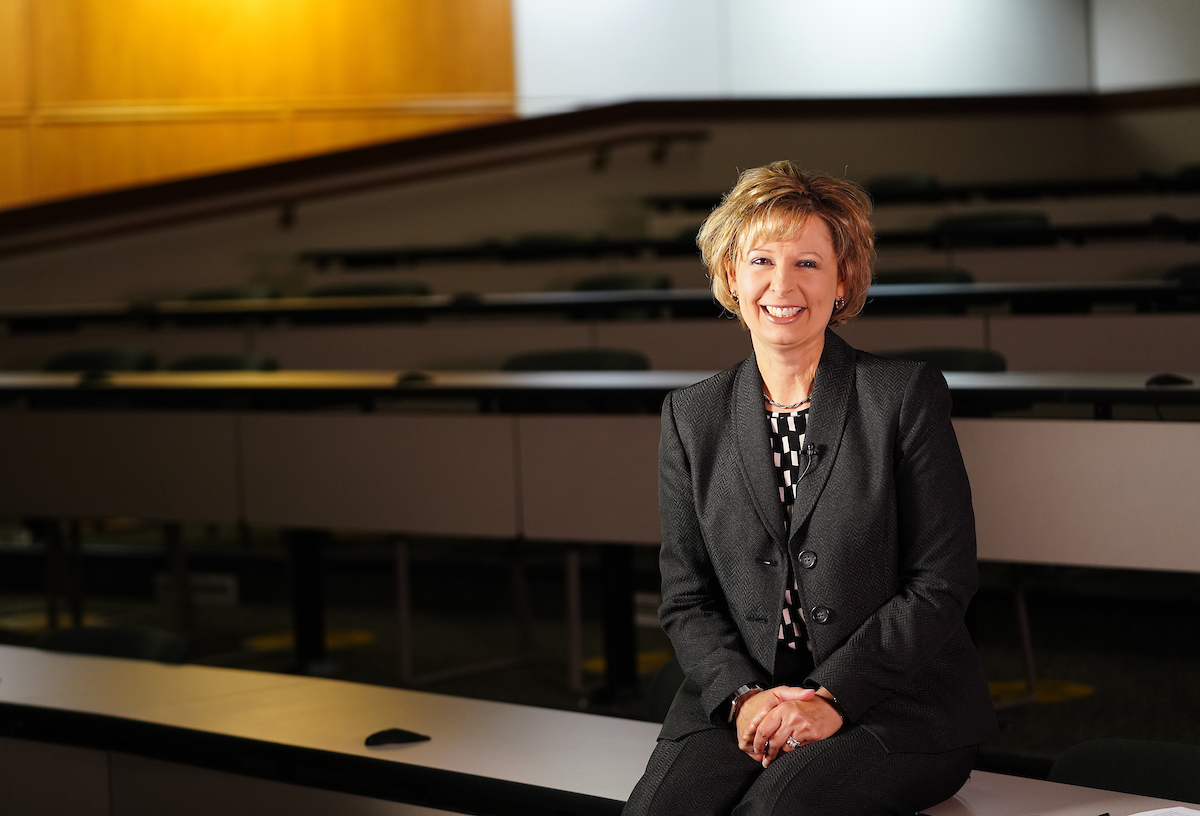Students experience a proven, high-quality curriculum in the program that includes Purdue’s Biotechnology Innovation and Regulatory Science (BIRS) master’s degree and online Biotechnology Quality & Regulatory Compliance Graduate Certificate (BQRC). But the program, celebrating its 20th anniversary, is about more than its content.
“It's about the people,” said Kari Clase, director of the Biotechnology Innovation and Regulatory Science (BIRS) Center at Purdue and a professor of agricultural and biological engineering.
Prominent among those people are Clase and Stephen Byrn, Charles B. Jordan Professor of Medicinal Chemistry. Internationally known in the field, they teach in Purdue’s program and are responsible for curriculum development and a lot of other things program related.
Clase is quick, however, to credit the team of other faculty members and the industry experts who work with the program’s students and the staff members who keep the program running smoothly. They all have at least one thing in common.
"We value the students first,” Clase said. “We are not just trying to teach you content but we're trying to equip you for life beyond the classroom, and ultimately, we want to help you graduate and we want to help you go on to be successful professionally, whatever that path looks like for you.”
Program started with Byrn and an alumni idea
Perhaps no one exemplifies the program’s student-centric orientation more than Byrn, a pre-eminent figure in his field who literally wrote the book on industrial pharmaceutical manufacturing and a serial entrepreneur who’s started and advised multiple ventures in the industry.
“Every time a student reaches out, every time a student has questions, anytime they are struggling in the smallest area within a course, he absolutely bends over backwards to take the time to meet with them, to provide perspective, to help them,” Clase said. “I just can't imagine there would be a better instructor from that perspective.” Clase said the success of the program also is a credit to an actively involved body of alumni.
"Our alumni don't just graduate and move on and forget about the program,” Clase said. “They're always reaching back, to touch base, to see how the program is changing, to see areas where they might be able to give back, to help our students, to prepare that next generation.”
Alumni, in fact, played a key role in originating the program, which started as the Regulatory and Quality Compliance Graduate Certificate in the Purdue Department of Industrial and Physical Pharmacy, where Byrn was the department head.
One of Bryn’s former students, Todd Chermak, had the idea for a program to accelerate the learning curve for people entering the regulatory field. He approached Byrn, whose entrepreneurial bent made it practically irresistible to him.
Byrn said Purdue’s position as a top pharmacy school with a focus on innovation and manufacturing, rather than the clinical focus typical of pharmacy schools attached to a medical school, made Purdue a perfect place for such a program.
When the program started, the students would come to campus Friday night, all day Saturday and most of the day Sunday, three times during a semester, for 45 contact hours total in a four-course program. Naturally, much of the program now takes place online, with the BQRC certificate 100% online and the BIRS master’s a hybrid involving periodic in-person sessions.
International reach began with Africa
In 2007, Sister Zita Ekeocha from the Medical Missionaries of Mary in Tanzania, who found Purdue and Byrn on the internet, sent the professor an email saying they needed an educational program on pharmaceutical manufacturing and regulatory science there. In 2008, Byrn started going to Tanzania twice a year for two weeks. He brought recordings of the Purdue classes and annotated them in person.
Now, the Tanzania program, with Clase leading it, has more than 100 master's students and 30 doctoral students in Africa and it is expanding to Uzbekistan and Tajikistan. Clase and Byrn don’t think those will be the last international expansions for the program either.
“In the developing world, they didn’t have the FDA,” Byrn said. “They didn’t have the pharmacy schools, and so on. Most of my experience is you do a project for 10 years and then it runs its course and ends. But this one never did that, it just kept going. What we started is important, I think.”
Clase doesn’t doubt that the program, now housed in Purdue’s No.1-ranked Agricultural and Biological Engineering Department (U.S. News and World Report), still has some legs left. The need is there and will continue to be as the field continues to grow and face challenges such as wrangling and analyzing the massive amounts of data generated today.
“We're not here to hold the keys forever,” Clase said. “We're trying to prepare the next generation and ultimately that next generation, that's our succession plan, our sustainability vision. Some of the students that are in my classroom today will be leading and teaching tomorrow.”
Visit the program websites to learn more about Purdue’s Master of Science in Biotechnology Innovation and Regulatory Science (BIRS) and the 100% online Biotechnology Quality & Regulatory Compliance Graduate Certificate (BQRC).





